Would you like to make this site your homepage? It's fast and easy...
Yes, Please make this my home page!

D U T C H T O W N
In 1900, Pittsburgh had three daily newspapers in German. All the big department
stores downtown hired German-speaking clerks and took out German ads in
the German newspapers. Many neighborhoods, especially on the North Side
(then the independent city of Allegheny), were almost entirely German.
But one in particular was associated in the minds of Pittsburghers with
Germans: Dutchtown, also known as Swiss Hole. (In spite of what revisionist
historians might tell you, it was never "Deutschtown"; "Dutch" is the original
English word for German, and it held on as an alternative term through
the 19th century.)
Officially East Allegheny, Dutchtown today is an odd mix. One street
might be broken-down and decrepit, but a block away there might be trendy
jazz clubs or beautifully restored rowhouses. The legacy of the old German
inhabitants is everywhere, though, as are many of their descendants. They
no longer speak German in public (the last German daily newspaper in Pittsburgh
lasted only a few weeks after Germany declared war on the United States
in 1941), but they still cook the same food and go to the same churches.
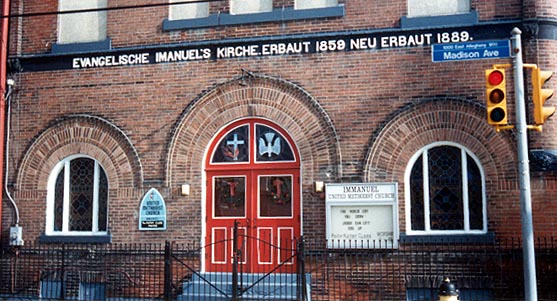
Imanuel's Evangelical Church, now Methodist, has proclaimed its German
heritage in big white letters since 1889.
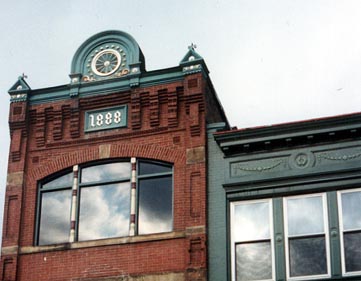
East Ohio Street, the lively business district of Dutchtown, shows the
German influence in many of its well-preserved Victorian commercial buildings.
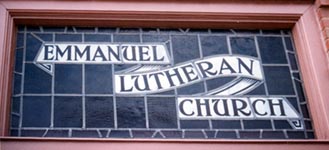
The German inhabitants of Dutchtown brought their religions with them,
and many of their descendants are still faithful--Roman Catholic, two flavors
of Lutheran, and Evangelical.
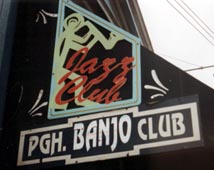
Trendy restaurants and clubs have sprouted here and there in the back streets.
The James Street Tavern is famous for traditional jazz and blues; the Pittsburgh
Banjo Club plays there every week.
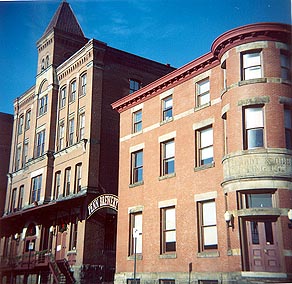
The old Eberhardt and Ober brewery is now the Penn Brewery, whose productions
are admired by connoisseurs the world over. The restaurant serves German
food, of course.
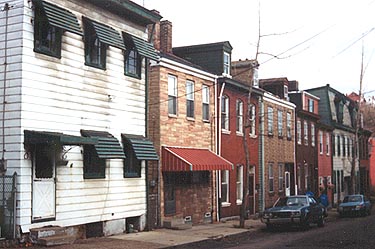
On the back streets of Dutchtown, you can see every form of ugly siding
ever invented by mistaken human ingenuity.
Copyright 1999 by Christopher Bailey.






